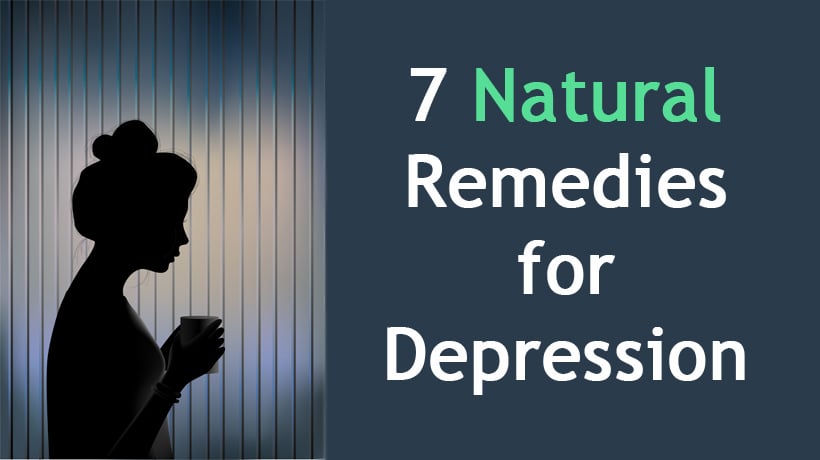For some people, it can seem like there are few words to properly describe the impact of depression on the body and the mind. This is what can make treating this disease so elusive, because depression causes disinterest and sadness that can stifle clear communication.
If you suffer from depression, consult a professional about the best treatment for you. While medications can help some people, natural remedies may also be effective in improving the mental and physical symptoms of depression.
Maintain healthy, consistent meals
It’s a known fact that being hungry puts most people on edge, and skipping meals can mess with your blood sugar levels. This, in turn, can lead to unstable mood patterns. What you eat is also just as important as how often you eat, since eating a healthy diet can make you feel better. According to Ian Cook, a psychiatrist and director of the Depression Research and Clinic Program at UCLA, there’s evidence that foods with omega-3 fatty acids (such as salmon and tuna) and folic acid (such as spinach and avocado) could help ease depression.
Stick to a serotonin-enhancing diet
According to Psychology Today, foods rich in omega-3 fatty acids, healthy fats, and proteins high in tryptophan are believed to boost serotonin levels, which may help with depression. Caffeine should be avoided, as it reduces serotonin levels. Antidepressants like Prozac act by inhibiting the reuptake of serotonin by receptors in the brain, thereby increasing serotonin levels. It can’t hurt to try this naturally!
Exercise
One of the best ways to boost your mood and feel-good chemicals called endorphins is to exercise. According to Cook, just walking a few times a week can help the brain rewire itself in positive ways.
Establish a routine
An excellent way to regain control of your life if you feel depression has disrupted it is to establish a routine. This could include a simple regimen like making sure to talk to a friend or family member each day or doing the dishes.
Cognitive awareness
Recognizing a potential reason for why you might be feeling depressed is essential. If there have been recent life changes like a divorce or death, it’s important to be aware that these events have affected you in order to move forward in a positive direction. Talking about your symptoms with a therapist, psychologist, or life coach can also help you find a purpose that will keep you motivated to fight through negative thoughts. Murali Doraiswamy, MD, professor of psychiatry and behavioral sciences at Duke University School of Medicine, recommends cognitive behavioral therapy for mild to moderate depression. She maintains that being aware of your thoughts and learning to change destructive patterns could alter the way your brain works and your reaction to situations.
Get plenty of sleep
The same way that exercising and eating well influence the mood enhancing chemicals in your body, so does resting. According to Harvard Health Publishing, scientists have discovered that sleep disruption — which affects levels of neurotransmitters and stress hormones, among other things — wreaks havoc in the brain, impairing thinking and emotional regulation. Studies report that depressed patients who continue to experience insomnia are less likely to respond to treatment than those without sleep problems.
Check your hormone levels
If any of your lifestyle choices have affected the chemicals in your body, it’s important to find out. A hormone imbalance in your adrenal, thyroid, or sex hormones can lead to depression. Getting each of these levels tested by visiting your doctor can help determine if this is a main cause that can be quickly addressed.
Sources:
https://www.psychologytoday.com/us/blog/owning-pink/201103/11-natural-treatments-depression-md-s-tips-skipping-the-prozac
https://www.webmd.com/depression/features/natural-treatments#1
https://www.health.com/depression/12-nondrug-remedies-for-depression
https://www.health.harvard.edu/newsletter_article/sleep-and-mental-health



